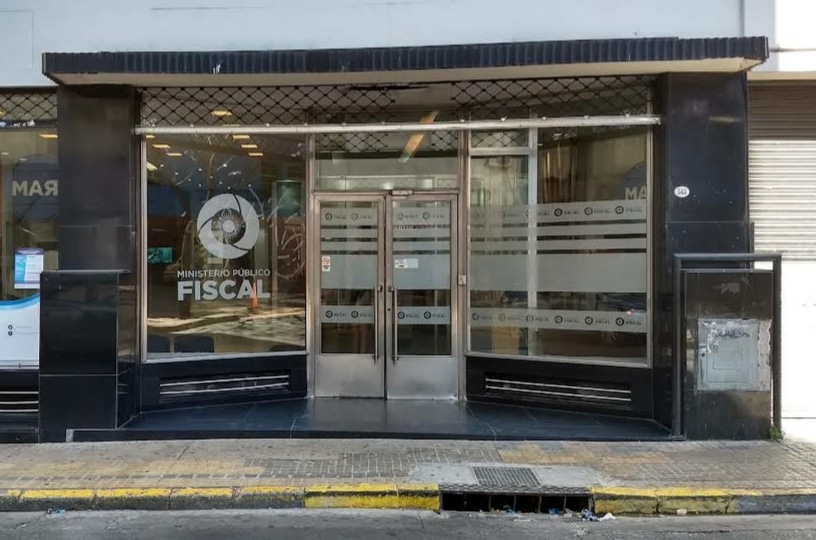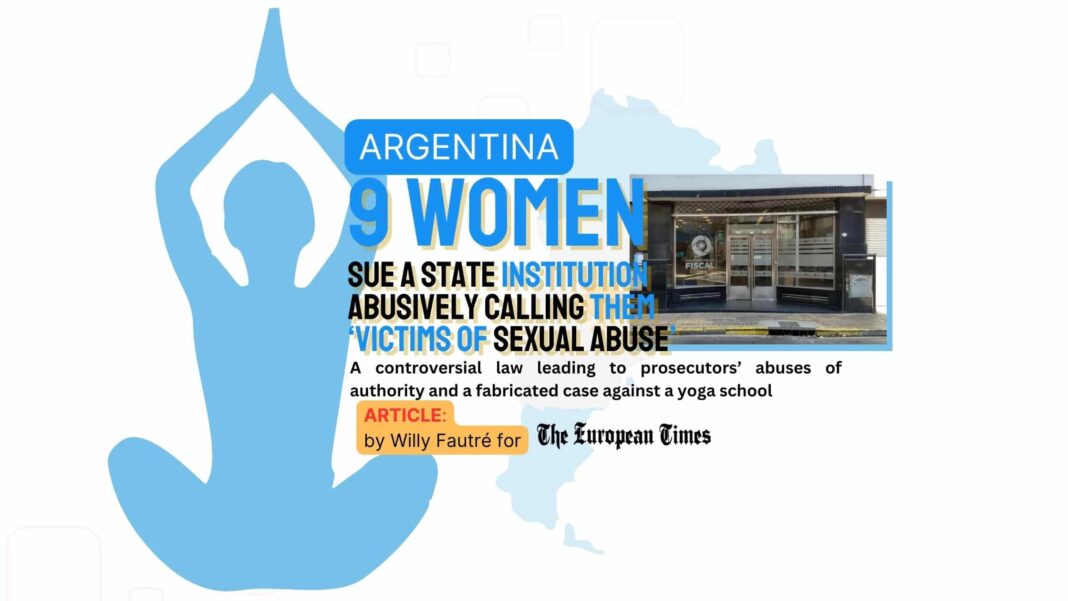Five women older than 50, three in their forties and one in mid-thirties are suing on appeal two prosecutors of the state agency PROTEX on unfounded claims of their being victims of sexual abuse in the framework of a yoga school. Their complaint had previously been turned down by a court of first instance.
Beyond this case, it is obviously the Buenos Aires Yoga School (BAYS) that is targeted. According to a complaint by a person whose name was not disclosed, the founder of the BAYS recruited people through deceit in order to reduce them to a situation of servitude and/or sexual exploitation. The purpose was allegedly to put in place an illegal business structure in Argentina and the United States under the umbrella of a cult-like yoga group for the laundering of funds obtained as a result of their activities.
The lawyers of the nine women consider it is a new attempt made by the same anti-BAYS activist 30 years ago who unsuccessfully lodged a similar complaint against the yoga school and its leadership. The charges were then declared unfounded and the accused were all cleared.
In the aftermath of the adoption of the law on the prevention and punishment of human trafficking (Law No 26.842), PROTEX started to misuse two concepts introduced in amendments in December 2012: the promotion of prostitution without coercion (Article 21), which is a crime, and the ambiguous idea of vulnerability (Articles 22, 23 and 26) as a form of coercion. On the one hand, the purpose of PROTEX is the instrumentalization of the BAYS case to increase its statistics and give an image of growing efficiency, which will allow it to demand a bigger budget. On the other hand, the accuser’s objective is to try to destroy the BAYS on personal grounds.
A hurdle race for access to justice on appeal
It has been a hurdle race for the female plaintiffs to have access to the appeal procedure. The complaint was first rejected by the judge for non-existence of a crime committed by the PROTEX prosecutors. The nine women were refused to be considered plaintiffs but their lawyers insisted, basing their arguments on two legal provisions:
Art. 82 of the Code of Criminal Procedure – “Any person with civil capacity particularly offended by a crime of public action shall have the right to become a plaintiff and as such to promote the process, provide elements of conviction, argue about them and appeal with the scope established in this Code”.
Art. 5 of the Victim Law– “The victim shall have the following rights: …. h) To intervene as plaintiff or civil plaintiff in the criminal proceeding, in accordance with the constitutional guarantee of due process and the local procedural laws”.
As of mid-June, the case is pending.
Some accusations against the PROTEX prosecutors
According to the lawyers of the plaintiffs, the PROTEX prosecutors have reportedly failed to denounce certain criminal acts that have occurred during the raids carried out by fully armed SWAT team police in the BAYS building in August 2022: robbery of items not mentioned in the search records, mistreatment, harassment, threats and damages to the residents’ properties by the personnel in charge of the search. The victims of facts stated that prosecutors Mángano and Colombo, in spite of being aware of the facts denounced, omitted to report them.
During the investigation and court proceedings, the right to privacy of the nine female plaintiffs was outrageously violated as their names were disclosed by PROTEX to all the people handling the file and even to the press. The media and social media published some of them with the socially negative connotation of prostitution but there is worse.
Interviews between one of the plaintiffs and a psychologist of PROTEX victims’ assistance program conducted in an isolated environment that the prosecutors and lawyers watched without being seen – the Gesell Chamber* procedure – finally happened to be streamed in a TV show! On the one hand, the confidentiality of such a procedure is the responsibility of PROTEX and on the other hand, it is absolutely illegal to stream such interviews on TV, all the more so since the nine women had explicitly asked their identity not to be disclosed.
Moreover, the prosecutors are also said to have disproportionately abused their power by extending the investigation on the plaintiffs to the international sphere, as cooperation was requested abroad to collect bank and financial data and information on the assets that the plaintiffs might have had in Uruguay and the United States. This resulted for three plaintiffs in the denial of access to the territory of the United States.
Not credible claims of sexual abuse
While prostitution is not illegal in Argentina, exploiting prostitution is criminalized. However, the plaintiffs strongly deny having been involved in prostitution.
PROTEX recognized in a workshop in 2017 that most victims of sexual abuse are young women who have rarely completed primary education and have no or hardly any livelihoods. In addition, it asserted that 98% of the seven thousand victims assisted by PROTEX did not consider themselves victims although they were.
In the current case of the nine female yoga practitioners, they are educated and have means of existence coming from their professional activities as teachers, artists, real estate agents or company managers. They do not have the profile of the victims assisted by PROTEX and the statistics of the state agency are not an argument to forcefully put the ‘victim label’ on them.
During the procedure, the plaintiffs declared that PROTEX considered them in a false and arbitrary manner as victims of a coercive cult-like organization allegedly “brainwashing” and abusing the vulnerability of its female followers (Source: Judge Ariel Lijo’s dismissal of the complaint in May 2023).
The term “cult” that was extensively used by the media to characterize the BAYS is not a valid category but a label used to slander unpopular minorities. As to the concept of “brainwashing”, it is a pseudo-scientific theory weaponized for the same purpose and it is rejected by serious scholars on religious issues.
The plaintiffs consider that they were not in a “cult” and were not “brainwashed”.
The expansion of the PROTEX controversial theory of the enforced status of victim

In the aftermath of the adoption of Law 26.842, PROTEX intensified its training program of “Workshops on Gender Perspective and Trafficking in Persons for Sexual Exploitation” launched in 2011 and started diffusing the idea that victims of prostitution rings were not any more able to think freely and to choose because if they could, they would make other choices. The new controversial philosophy of PROTEX is to rethink prostitution in the light of vulnerability.
In that year, Assistant Prosecutor Marysa S. Tarantino attended the Training Program organized by the Supreme Court of Justice of the Nation – through its Women’s Office – and the Attorney General’s Office – through the then called UFASE (an anti-trafficking prosecutor unit nowadays turned into the Attorney General’s Office under the name PROTEX). She shared her critical thoughts about PROTEX philosophy in a 13-page paper titled “La madre de Ernesto es puro cuento/ Una primera crítica a los materiales pedagógicos de la PROTEX” and published in Revista de Derecho Penal y Procesal Penal, Nr. 3/ 2018, Buenos Aires, Abeledo Perrot. I extract a few of the author’s ideas hereafter.
The Program was designed jointly by the two agencies to be given to officials and employees of the National Judicial Branch and the National Public Prosecutor’s Office. Its purpose was to train legal operators (especially judges, prosecutors and other legal officials) so that they could acquire “the” gender perspective necessary to deal with cases of trafficking in persons, with special emphasis on cases of sexual exploitation.
Once the participants successfully completed the course, they could become trainers and disseminate their new knowledge and sensitivities in their different territorial jurisdictions, throughout the country. The objective was to create a snowball effect: the expansion of the theory that people can be qualified by PROTEX as victims without their consent and even against their will. This dangerous trend observed in Argentina may inspire other countries and urgently needs to be publicly questioned and debated not only in the country itself but also on a global level.
Concerning the experience of the nine female yoga practitioners at BAYS, their case has obviously been fabricated at various levels to make it a case of prostitution exploitation to be dealt with by PROTEX with the aim of feeding an indictment against the BAYS.









